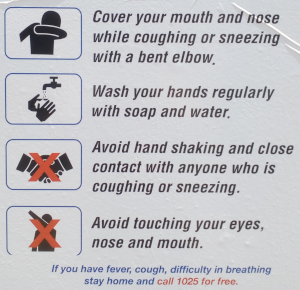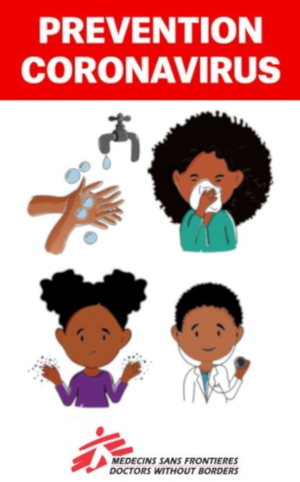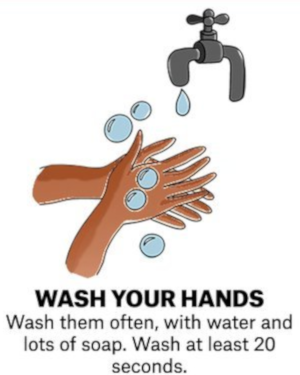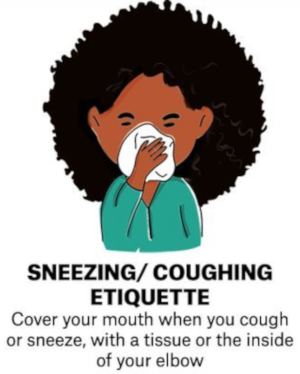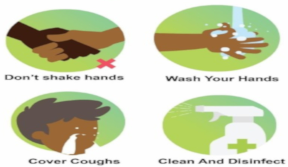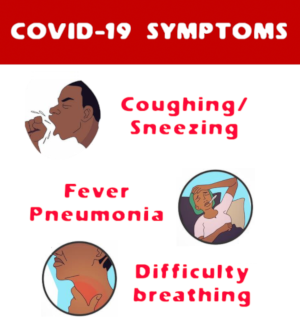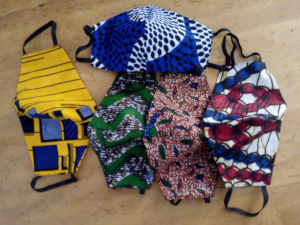 Prevention is better than cure: Sanitation measures like frequently handwashing, physical distancing, to avoid public gatherings or the wearing of face masks can help to slow down the spreed of Corona.
Prevention is better than cure: Sanitation measures like frequently handwashing, physical distancing, to avoid public gatherings or the wearing of face masks can help to slow down the spreed of Corona.
After the local transmission of the COVID-19 in Gambia started in July 2020, the government decided to introduce mask-wearing. Starting with July 24, wearing of face masks become compulsory.
Beside the wearing of face masks, it is important to keep with hygienic measures. In their advice the MRC, the Medical Research Council Unit The Gambia:
“encourage everyone to practice the key preventive measures
- Wash your hands often with soap and water.
- Use an alcohol-based hand sanitizer if soap and water are not available. This is particularly important after taking public transport.
- Avoid touching your eyes, nose, and mouth with unwashed hands.
- Avoid close contact with people who are sick.
- When you cough or sneeze, cover your mouth with a tissue, then throw the tissue in a bin.
- Clean and disinfect frequently touched objects and surfaces in the home and work environment.
For timely, reliable and accurate information on the Coronavirus pandemic, contact the national helpline on 1025, from any network, free of charge.”
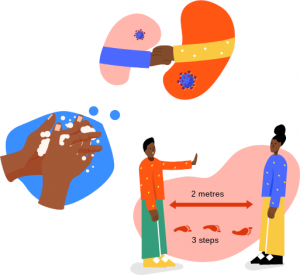 Beside that it is advised to keep physical distancing by avoiding crowds as much as possible. People should stay at home if possible and they should as well stay away from each other, especially if they are not living in the same household. This can help to stop the spread of the virus.
Beside that it is advised to keep physical distancing by avoiding crowds as much as possible. People should stay at home if possible and they should as well stay away from each other, especially if they are not living in the same household. This can help to stop the spread of the virus.
Anyone who feels ill or observes COVID-19 symptoms (like coughing/sneezing, fever, pneumonia, difficulty breathing) should immediately contact the national helpline by calling 1025 from any network, free of charge.
Testing, testing, testing, … is part of prevention
In Gambia, the COVID-19 testing was done by MRC, the Medical Research Council Unit The Gambia at the London School of Hygiene & Tropical Medicine, in Fajara. The testing is facilitated by the Ministry of Health and took place in collaboration with the National Public Health Laboratories (NPHL). In June 2020, a new laboratory in Kotu was established. Now the testing is done by the NPHL in Kotu and MRC in Fajara.
If you feel COVID-19 symptoms (like coughing/sneezing, fever, pneumonia, difficulty breathing) you should immediately contact the national helpline by calling 1025 from any network, free of charge.
— Updated on 24. July 2020 —
